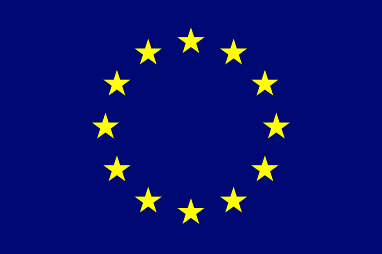Publications
Throughout the year, VOICE produces and disseminates key documents reflecting on humanitarian aid issues at the EU level and from an NGO perspective. They are addressed to decision-makers within the European institutions, at the National level, to NGO networks and other stakeholders of the humanitarian community, as well as to the VOICE members. Some documents are produced by the VOICE Secretariat with the support of VOICE members while others are publications from members and other key stakeholders in the humanitarian sector.
Please note that members-only documents will not be visible unless you are logged in.
-
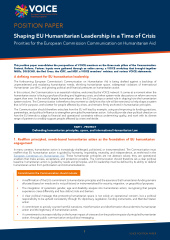
Shaping EU Humanitarian Leadership in a Time of Crisis: Priorities for the EC Communication on Humanitarian Action
04 February 2026VOICE position papersThis position paper consolidates the perspectives of VOICE members on the three main pillars of the Communication: Protect, Reform, Partner. Inputs were gathered through an online survey, a VOICE workshop that brought together NGOs, DG ECHO, the Red Cross, the ICRC, and MSF, a VOICE members’ webinar, and various VOICE statements. -
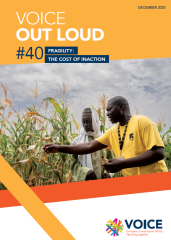
VOICE out loud 40: Fragility the cost of Inaction
04 February 2026VOICE out loudThe latest issue of the VOICE out loud magazine examines why sustained engagement in fragile contexts is essential, even amid political and financial pressures. Through concrete experiences from humanitarian and development actors, it highlights the human, economic and geopolitical costs of disengagement, and offers practical insights for operationalising the Humanitarian–Development–Peace Nexus in fragile and conflict-affected settings. -
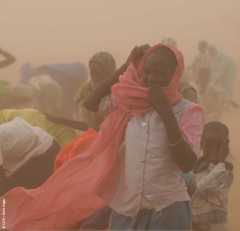
Alternatives Humanitaires: Issue 30 - Aid in danger: after the shock of 2025, the consequences and the response
03 February 2026Members' publicationsThis issue of Humanitarian Alternatives examines the growing risks facing humanitarian action following major funding shocks in 2025. Drawing on analysis and field-based perspectives, it highlights how shrinking aid budgets are affecting humanitarian systems and crisis-affected populations, the dilemmas faced by organisations under political and financial pressure, and the urgent need for renewed political commitment and sustainable financing to prevent further erosion of humanitarian response. -
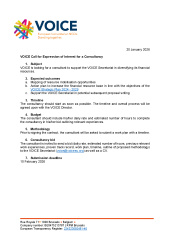
VOICE Call for Expression of Interest for a Consultancy
20 January 2026VOICE is looking for a consultant to support the VOICE Secretariat in diversifying its financial resources. -
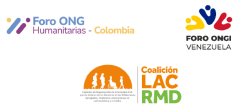
LAC RMD Coalition: Position paper on the strengthening and effectiveness of humanitarian coordination
14 January 2026Members' publicationsThis joint position paper by the LAC RMD Coalition, the Colombian Humanitarian NGO Forum, the Venezuela INGO Forum, and the Peru Humanitarian Forum outlines four priority recommendations to strengthen humanitarian coordination in Latin America and the Caribbean amid complex regional crises and funding challenges. -
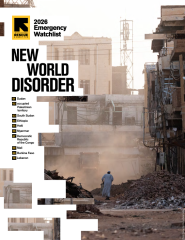
International Rescue Committee: 2026 Emergency Watchlist
07 January 2026Members' publicationsThe Emergency Watchlist report is the International Rescue Committee’s (IRC) assessment of the 20 countries most likely to face a worsening humanitarian crisis in the coming year. -
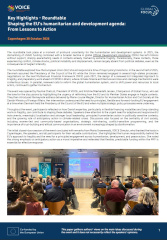
VOICE key highlights: VOICE - Global Focus roundtable in Copenhagen “Shaping the EU’s humanitarian and development agenda: From Lessons to Action"
18 December 2025VOICE event reportsThis document summarises the main ideas discussed during the roundtable in Copenhagen, jointly organised with Global Focus. -
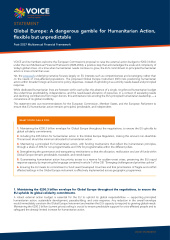
Global Europe: A dangerous gamble for Humanitarian Action, flexible but unpredictable
15 December 2025EU Funding Working GroupIn this statement, VOICE outlines why a clear and predictable humanitarian budget, alongside safeguards for non-programmable funding, is essential to preserve the independence, effectiveness, and credibility of EU humanitarian action—and sets out recommendations to ensure the EU remains a reliable humanitarian donor in an increasingly volatile global context. -
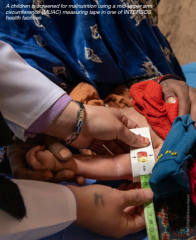
INTERSOS: Malnutrition in Afghanistan - An overlooked crisis
08 December 2025Members' publicationsThis report by INTERSOS examines Afghanistan’s rapidly worsening malnutrition crisis and outlines how funding cuts, food insecurity and limited access to services are driving severe risks, particularly for children and women. It highlights the organisation’s frontline experience, major gaps in the humanitarian response and the consequences of inaction, concluding with clear recommendations for donors and humanitarian leaders. -
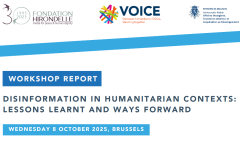
Disinformation in Humanitarian Contexts: Lessons Learnt and Ways Forward
20 November 2025VOICE event reportsThis report summarises the key discussions and insights from the workshop “Disinformation in Humanitarian Contexts: Lessons Learnt and Ways Forward”, which was co-organized by Fondation Hirondelle and VOICE, and hosted by the Belgian Ministry of Foreign Affairs. The event examined how disinformation and misinformation are reshaping humanitarian action. Participants proposed ways to strengthen the resilience of humanitarian actors and ensure that affected populations can access reliable, life-saving information. -
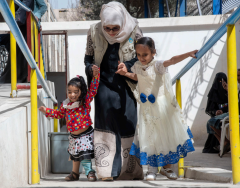
Handicap International: How identity shapes risk of harm and access to aid in EWIPA contexts - Identifying humanitarian gaps and an Agenda for Action
17 November 2025Members' publicationsThis report by Handicap International – Humanity & Inclusion (HI) analyses how intersecting identity factors such as gender, age and disability shape civilians’ vulnerability to explosive weapons in populated areas and their access to humanitarian assistance, highlighting critical gaps in inclusion and response. -
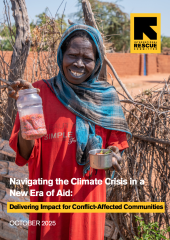
International Rescue Committee: Navigating the Climate Crisis in a New Era of Aid - Delivering Impact for Conflict-Affected Communities
27 October 2025Members' publicationsThe International Rescue Committee’s policy brief calls for urgent action to direct climate finance and anticipatory measures toward conflict-affected communities, emphasizing grant-based, flexible, and people-centered approaches to build resilience amid worsening climate shocks and shrinking aid budgets. -
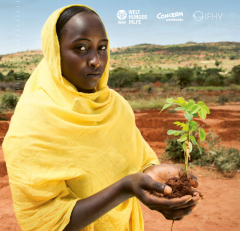
Global Hunger Index 2025: 20 Years of Tracking Progress – Time to Recommit to Zero Hunger
27 October 2025Members' publicationsThe 2025 Global Hunger Index, published by Welthungerhilfe, Concern Worldwide, and the IFHV, warns that global progress toward Zero Hunger has stalled amid escalating conflicts, climate shocks, and funding cuts, calling for renewed political commitment to end hunger as a preventable policy failure. -
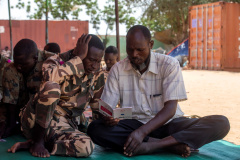
Managing Misinformation and Disinformation in the Humanitarian Space
03 October 2025VOICE out loudVOICE out Loud #39 features an article by Geneva Call on tackling misinformation and disinformation in armed conflict, highlighting how false narratives threaten humanitarian access and civilian protection. The piece outlines proactive, responsive, and precautionary approaches for engaging armed groups, communities, and local leaders to safeguard trust and ensure principled humanitarian action. -
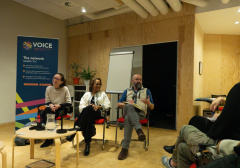
VOICE Key Highlights from VOICE event “Decolonising Humanitarian Action: Shifting Power, Voices, and Resources”
03 October 2025VOICE out loudVOICE out Loud #39 features highlights from the VOICE event “Decolonising Humanitarian Action: Shifting Power, Voices, and Resources,” which explored how colonial legacies continue to shape humanitarian practice and narratives. The discussion called for shifting power and resources to local actors, amplifying community voices, and challenging the sector’s structural inequalities to build more just and inclusive humanitarian action. -
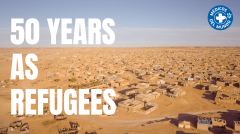
Health in Exile: Upholding the right to dignity for the Sahrawi people
03 October 2025VOICE out loudVOICE out Loud #39 features an article by Médicos del Mundo on the collapsing health system in the Sahrawi refugee camps, warning that decades of exile, funding cuts, and shortages have pushed healthcare to the brink. The piece calls on the EU and international donors to match declarations of solidarity with sustained financial commitment to uphold dignity and the right to health. -
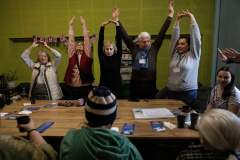
Story-Owning: Representation, power, and the future of humanitarian narratives
03 October 2025VOICE out loudVOICE out Loud #39 features an article by HIAS on the ethics of humanitarian storytelling, calling for a shift from “storytelling” to “story-owning” to restore dignity, agency, and accountability to displaced people. -
More Than a Picture: Navigating the ethics of visual storytelling in humanitarian fundrasing
03 October 2025VOICE out loudVOICE Out Loud #39 features an article from ADRA reflecting on the ethics of visual storytelling in humanitarian fundraising, highlighting the risks of stereotypes and the importance of dignity, consent, and solution-based communication. -
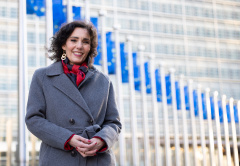
Interview with Hadja Lahbib, EU Commissioner for Equality; Preparedness and Crisis Management
03 October 2025VOICE out loudVOICE Out Loud #39 brings an interview with EU Commissioner Hadja Lahbib, exploring how the EU balances visibility with dignity in humanitarian communication, counters misinformation, and amplifies local voices. -
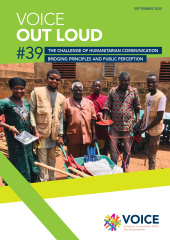
VOICE Out Loud 39 “The Challenge of Humanitarian Communication: Bridging Principles and Public Perception"
30 September 2025VOICE out loudThis issue explores how humanitarian narratives can uphold dignity, agency, and justice in an increasingly complex landscape. Inside you’ll find:
- Contributions from ADRA, HIAS Europe, Geneva Call, and Médicos del Mundo on topics ranging from the ethics of visual storytelling, countering disinformation, neglected crises, and shifting power toward local communities.
- Highlights from our recent VOICE event on decolonising humanitarian action.
- An exclusive interview with EU Commissioner Hadja Lahbib, reflecting on the importance of responsible, dignified, and inclusive humanitarian communication.
-
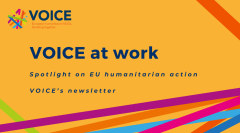
VOICE at Work 9 - Spotlight on EU Humanitarian Action
29 September 2025VOICE at workTable of contents:
Von der Leyen Acknowledges Humanitarian Catastrophe in Gaza in State of the Union Speech
The Next MFF: Ensuring Humanitarian Action Takes One Step Forward, Not Two Steps Back
VOICE Policy Resolution 2025 - Time for Action: Humanitarian NGOs call for a bold response to fragility
Reforming the Humanitarian System: 5 Key Actions the EU must take!
VOICE Event: Navigating Geopolitical Change: Challenges and Opportunities for Humanitarian Action
VOICE Out Loud 39 "The Challenge of Humanitarian Communication Bridging Principles and Public Perception"
VOICE Annual Report 2024
Humming Word: A humanitarian term explained
VOICE Members' publications
Other relevant Humanitarian Aid publications
Events and webinars -

Due Diligence Harmonisation in Ukraine - Local Organisation Focused Learning Report
25 September 2025Members' publicationsReport by Alianza por la Solidaridad on Due Diligence Harmonisation in Ukraine. -

Due Diligence Harmonisation in Ukraine - Inception Report and Situation Review
25 September 2025Members' publicationsReport by Alianza por la Solidaridad on Due Diligence Harmonisation in Ukraine. -

Joint NGO Statement - UNGA 80: Yemen’s Humanitarian Crisis Must Not Be Forgotten
24 September 2025Members' publicationsJoint NGO Statement on Yemen signed by VOICE members. -
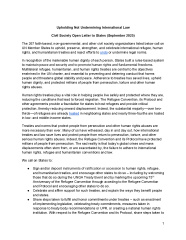
Upholding Not Undermining International Law - Civil Society Open Letter to States (September 2025)
23 September 2025VOICE joined over 270 organisations in signing an open letter calling on UN Member States to uphold and strengthen international refugee, human rights, and humanitarian treaties. The letter urges governments to celebrate and reaffirm their commitments, reject attempts to weaken legal protections, and take concrete steps to safeguard people from persecution, displacement, and human rights abuses. At a time of global crises, the message is clear: international law saves lives and must be protected, not undermined.

